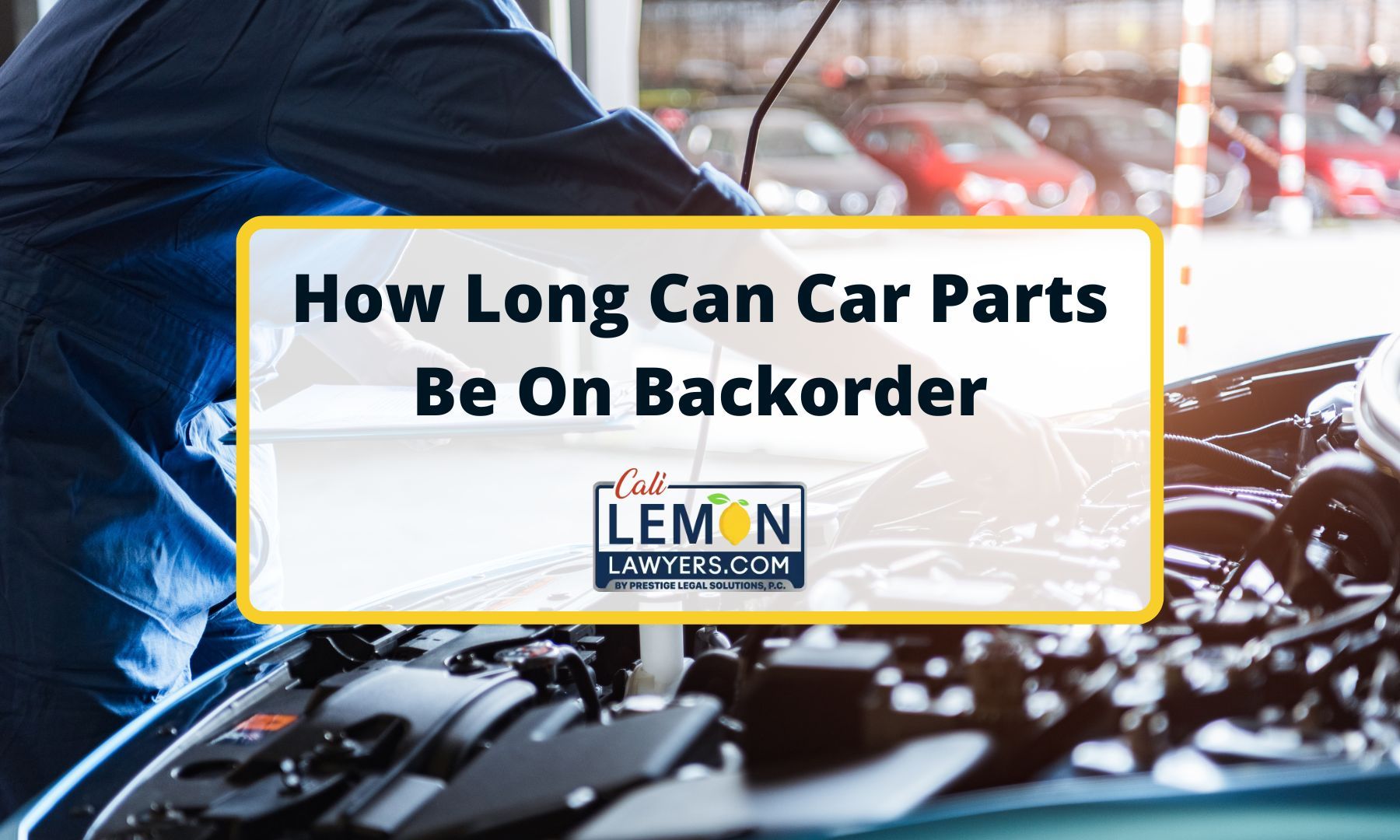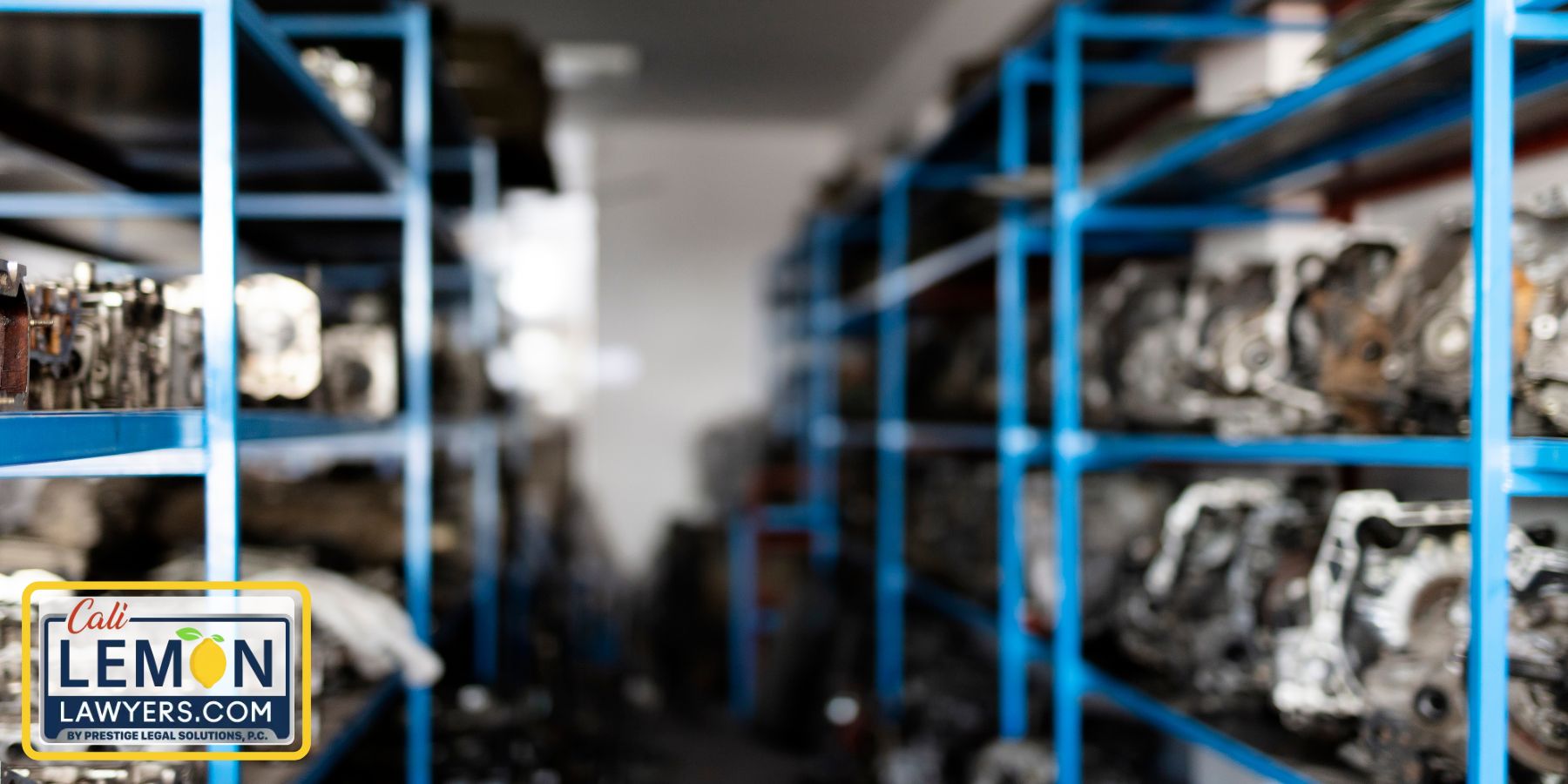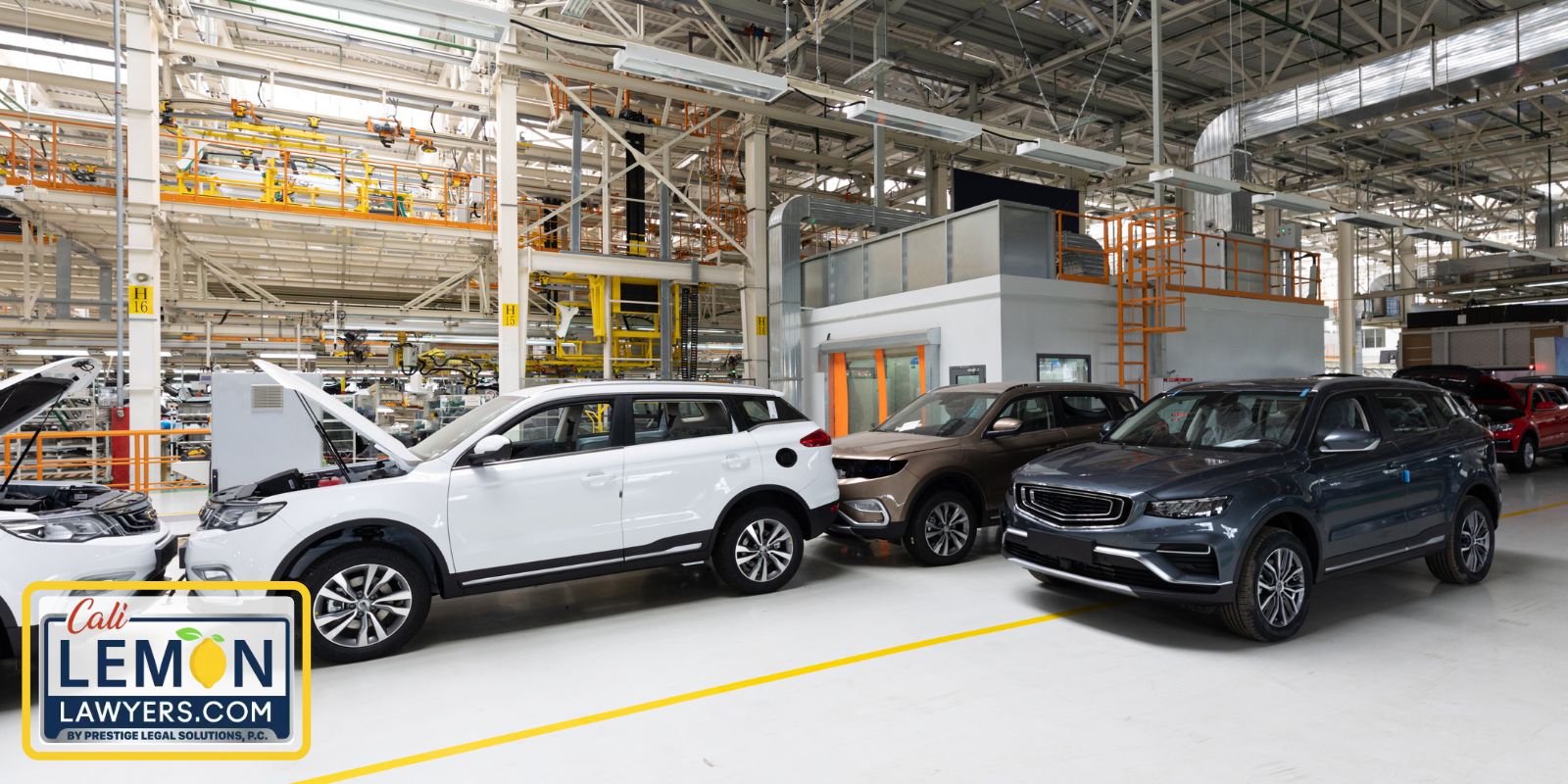
How Long Can Car Parts Be On Backorder
One of the most challenging issues car owners face at a service center is waiting for backordered parts. This delay is not only frustrating, but it raises the logical questions: How long does it take for these backordered car parts to arrive? What causes this backlog in the first place?
This article will answer those questions, uncover the waiting periods, and analyze the challenges within the car parts supply chain that lead to such situations in 2023.
Are you waiting long periods for car parts on backorder due to a manufacturer defect? Depending on how long the dealership has had your car for repair, Cali Lemon Lawyers may be able to get you Lemon Law compensation for your car!
Typical Duration of Backorders in the Auto Parts Industry
The typical duration of backorders in the auto parts industry in 2023 is 8 to 12 weeks. However, some parts may have longer backorders, especially if they are made from specific materials or are in high demand. The global chip shortage has also contributed to longer backorder times for some auto parts.
Here are some of the factors that can affect the duration of backorders in the auto parts industry:
- The availability of the part. If the part is in high demand or is made from specific materials, it may have a longer backorder time.
- The location of the supplier. If the supplier is located overseas, it may take longer for the part to arrive.
- The shipping method. If the part is shipped by air, it will arrive faster than if it is shipped by sea.
- The current state of the global supply chain. The global supply chain is currently facing disruptions due to the COVID-19 pandemic and the war in Ukraine. This can also contribute to longer backorder times.
Common reasons for delays in the supply chain issues
A supply chain works effortlessly through a constant flow from phase to phase, step by step. If there is one slight interruption in the flow of things, it can throw the process completely off and cause supply chain issues and delays that lead to an influx of backorders on car parts.
These are some common reasons for delays at the body shop when getting your car fixed:
- If any one of the Tier suppliers runs into a problem (I.e. staffing challenges, manufacturing delays etc.), this can impact the supply chain negatively by halting the car manufacturing process. Issues like a shortage of raw materials or problems in the region of the tier supplier can cause problems and delays.
- Since manufactured car parts need to be distributed to dealers and manufacturers, issues in transportation can become a hindrance too. Transportation speed and availability can cause major delays in getting parts out in time, causing increased back orders for dealers and body shops.
- When car manufacturers implement a just-in-time production strategy to precisely match production levels with market demand, they can avoid overproducing vehicles. However, this approach can be disrupted by sudden spikes in demand for new cars, leading to interruptions in the supply chain. As a result, this can cause shortages and backorders, as well as a loss of revenue.
Dealing with Extended Backorders: A Guide for Car Owners
When dealing with backorders, good communication with service managers is crucial. They should provide regular updates on expected delivery times. If the wait is too long, exploring alternatives such as finding a used part or a compatible substitute from another brand might be necessary.
To minimize the impact of backorders, consider regular maintenance of your car to reduce the risk of sudden part failures. Furthermore, building relationships with multiple suppliers can give you more options when a part is unavailable.
Legal steps to take with extended backorders
There are consumer rights and protections associated with backorders related to manufacturer defects under warranty. Laws vary by state, but generally, consumers have the right to cancel an order if it isn’t fulfilled within a reasonable time. Also, understanding the supplier’s refund and cancellation policies is important.
- Never drive your vehicle if it is not safe to drive.
- Document all repairs performed on your vehicle and how long it has been in the repair shop or not in use.
- Get a repair order and invoice for every time your vehicle has been sitting in the shop/dealership, with service dates, the repairs done, and the costs involved.
- Seek legal assistance from Cali Lemon Lawyers to file a claim and to find out what your rights are.
Guide for Dealers and Manufacturers
As a car manufacturer dealing with car part backorders, one of the first things to offer the consumer is reimbursement in the form of a courtesy car. Another option is to reimburse a consumer with payments that would cover them in the waiting period while they are unable to use their vehicle.
Dealers and manufacturers can also look into finding back-ordered parts from the salvage yard market and not just rely solely on sourcing official replacement parts. This can work especially for independent repair shops. Salvage parts are usually in good working condition and covered by warranties. This approach can keep business running smoothly.
Dealers and manufacturers need to be completely transparent with customers about delays. A lack of communication or miscommunication from service shops and facilities can further exacerbate delays in backorders. Repair shops have been known to be bad at returning calls for updates in car part back orders.
Understanding the Mechanics of Car Parts Supply Chain
Like all goods and services, the automotive industry runs efficiently on its set supply chain. The supply chain process for the auto parts industry sees through the fulfillment of getting car parts manufactured and produced, having them successfully distributed to manufacturers, dealers, or car repair shops through global transportation, and finally being sold to customers/car owners who need them for various car repairs.
Recently, however, the auto parts industry has experienced supply chain issues, that have led to a backlog of backorders for certain parts. Manufacturers and dealers of parts have found themselves in a tight spot when it comes to fulfilling orders for customers and automakers. As a result, customers have had to suffer disappointment in the hopes of having their car problems attended to on time and the production of new cars has also been disrupted in a time where new vehicles have been in high demand. Understanding the car parts supply chain process/system can be helpful.
How The Automotive Supply Chain Works
The automotive industry supply chain works in four phases.
- Suppliers of parts.
- The manufacturing process of parts.
- Distribution to dealerships.
- Selling to customers.
In phase 1, suppliers of auto parts are broken up into three different tiers. This is dependent on what they supply to the market and their relations in the automotive industry.
Tier 1 suppliers – Tier one consists of suppliers that usually offer finished parts/components solely built for cars to the auto OEM (Original Equipment Manufacturer)/carmakers ready to assemble vehicles, they often have direct relationships to car manufacturers.
Tier 2 suppliers – Tier two suppliers make required parts too like Tier one suppliers, but theirs are not just exclusive to vehicles but other industries too. Some of their components are also used in Tier One components.
Tier 3 suppliers – Tier three suppliers are the makers of unprocessed raw and unfinished materials that go into constructing a car. These materials can include metals, plastics, and minerals and are distributed to the car manufacturers and each tier of the supplier.
The Impact of Delays On The Automotive Industry and Consumers
Delays in receiving motor parts due to backorders affect both the automotive industry and consumers negatively. When delays are experienced, supply chain issues disrupt production, manufacturing, and sales. Repair shops and dealerships are unable to conduct business efficiently by helping drivers get their cars fixed on time and have to wait for car parts to be delivered.
In the worst cases where one car has been in need of a part for months, shop owners have had to become more flexible and permit damaged cars to be out on the road if they could still be driven safely. They can encourage this as a way of helping a customer save on a rental.
Drivers are left stranded with cars they cannot drive due to waiting for one or multiple crucial parts. For some car owners who find themselves in a tight spot, buying a new car altogether, or having to sell back their car becomes the only way out.
Next Steps
Difficulties such as supply chain interruptions in the automotive industry have led to a backlog in back orders for car parts needed to fix defective cars. You could find yourself waiting a week, months, or over a year for a new engine or any other vital car part for your vehicle.
Being stuck with a car sitting in the repair shop due to a parts shortage can be a great inconvenience. Supply chain problems in the automotive industry have caused disruptive delays in getting car parts delivered on time. Cali Lemon Lawyers can assist in any backorder issues and provide legal guidance.
Contact Cali Lemon Lawyers if you are dealing with a complex back-order situation that needs legal intervention. Their dedicated Lawyers can also help guide you through any warranty claims on defective car parts according to Lemon Law.





